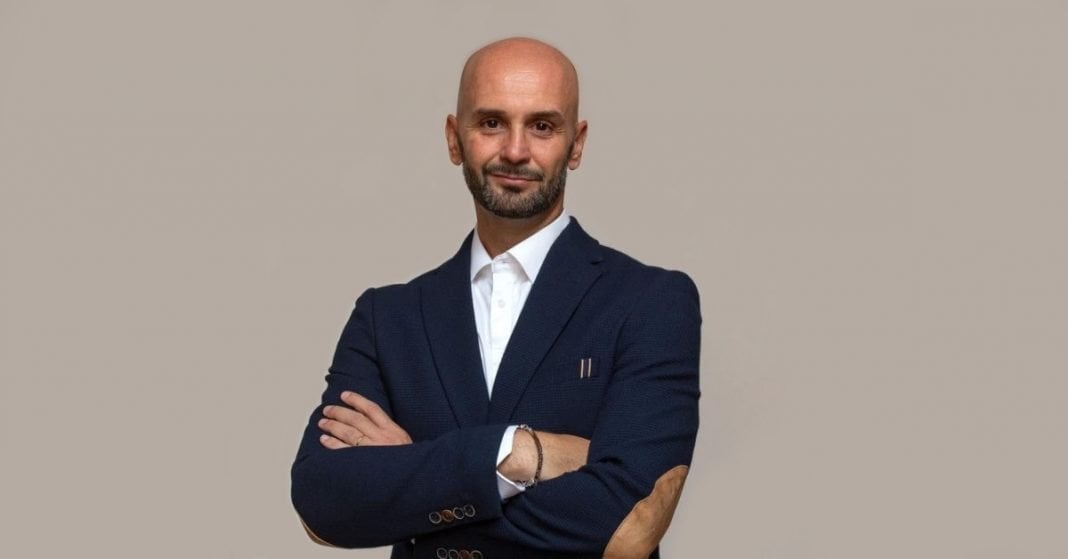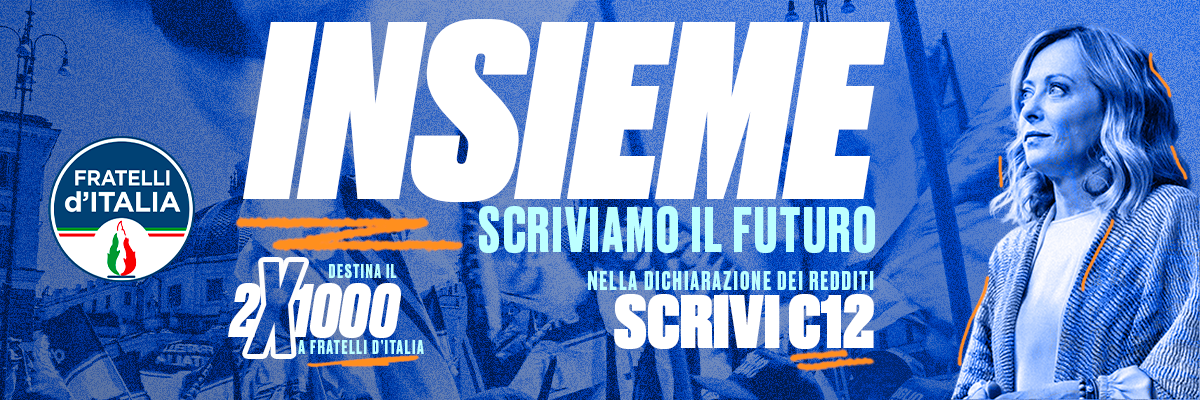The long wave of the European conservative revolution seems to have found a new protagonist in the East. In Romania, AUR leader George Simion won more than 40 percent of the vote in the first round of the presidential election, disrupting traditional balances and establishing himself as an interpreter of a widespread sentiment of impatience with the European technocratic establishment. His success is not an isolated episode but part of the broader growth of sovereignist and identity-based forces across the continent, with the ECR (European Conservatives and Reformists) as one of their main political references.
We spoke about this with Mr. Nicola Procaccini, co-chair of the ECR group in the European Parliament, to understand the political significance of this result, the relationship between Romania and the European Union, the common challenges with Italy on economic, cultural, and migratory fronts, and the role that freedom of expression must once again play in a truly pluralistic democracy.
Mr. Procaccini, George Simion obtained more than 40 percent of the vote in the first round of the Romanian presidential elections, marking a significant success. How do you interpret this result in the context of the European conservative revolution promoted by the ECR?
The result achieved by George Simion is a clear sign of the new wind blowing across Europe. I believe this success should be seen as part of the broader conservative revolution sweeping the continent. We conservatives have long denounced the limitations of a bureaucratic, centralist Europe that is distant from its citizens. The rise of forces like the one led by Simion testifies to the desire for change and the search for a Europe of nations, where identity, security, and welfare are not at odds with European cooperation but are its foundation—ensuring more participation, less technocracy, more national pride, and less ideological homogenization. George Simion has been able to respond to these needs.
We conservatives have our own political identity. We are right-wing, moderate in tone but firm in principles, and I believe it is no coincidence that wherever there are elections in Europe, conservative values are increasingly gaining ground. Along with Italy and the Czech Republic, the recent appointment of Bart De Wever as Prime Minister made Belgium the third EU nation with a premier from a party belonging to the Conservatives and Reformists (ECR) group in the European Parliament. This is a historic achievement, reflecting the Conservatives’ growing influence in the European Council as well.
After the EPP, the ECR is now the second most represented political group in the Council, along with the Socialists, while there are Conservative ministers in the governments of Bulgaria, Finland, and Sweden. We represent a tradition, an identity, a well-defined political character, and in many parts of Europe people look to us as a source of hope for the EU to return to its original aspiration: an alliance of brotherly peoples, not an asphyxiating centralist superstate. A confederal model, where nations do not disappear—instead, they are decisive, fundamental in their freedom and sovereignty, which must be safeguarded.
Mainstream media portray Simion as a threat to the EU and NATO, despite his broad popular support. How do you respond to this criticism, and what concrete actions could his presidency take to strengthen Romania’s sovereignty within the Atlantic Alliance?
This narrative from certain mainstream media has become an automatic reflex whenever a political figure not aligned with the dominant narrative gains popular support. George Simion is not a threat to the European Union or NATO. His colleagues in the AUR party, led by Simion, are part of the Conservative Group in the European Parliament, which includes dozens of MEPs from parties already in government in their respective countries.
In short, we represent a political movement that can certainly be described as “right-wing,” but by no means “far-right” or “ultra-right.” Simion has reiterated that he has no intention of leaving the EU, yet he is routinely described in Italian newspapers as an anti-European “hooligan.” He has also stated that Romania’s membership in NATO is vital for its survival, yet he is labeled as anti-NATO and therefore pro-Russian. There is nothing anti-European or anti-Western about this. A Simion presidency could make a more concrete contribution to regional security within the NATO framework, with particular focus on the Black Sea and the control of migration flows on the eastern border.
It is not about questioning alliances, but about making them more balanced, respectful, and beneficial to the peoples they represent. I would define Simion’s stance as “Eurorealism,” which seeks to reconcile belonging to the West with reaffirming the centrality of Romania’s national interest.
The cancellation of the November elections in Romania raised concerns about the country’s democratic resilience. In light of events also unfolding in France and Germany, what tools do you propose to ensure the integrity of electoral and democratic processes in the future?
The cancellation of the elections in Romania is an extremely concerning signal. It represented a dangerous exception to democracy in Europe. I fear that the demonization of Simion may be a prelude to a similar future decision. Cancelling democracy to defend democracy would be a tragic mistake.
As the ECR Group, we advocate for the adoption at the European level of binding minimum standards to ensure the integrity of electoral processes in all Member States. This includes actions and tools such as absolute transparency in campaign financing and the protection of political pluralism and fair representation in public media. Emergency procedures that are being used to postpone or manipulate democratic voting must also be reviewed.
It is time to state clearly that the European Union cannot be inflexible with some states regarding the “rule of law” and blind with others when violations occur in governments favored by the establishment. Democratic integrity must be protected everywhere and by the same standards.
If elected, Simion would join Giorgia Meloni in the European Council, significantly strengthening the conservative presence. How could Italy and Romania work together to promote policies that protect national economies and enhance the identity of European peoples?
This would be a strategic step toward consolidating a conservative axis that places the interests of European peoples at its core. Italy and Romania, though with different histories, share deep values: Christian roots, respect for national sovereignty, attachment to the family, community, and the dignity of labor.
On these pillars, virtuous cooperation can be built. Together, we can promote economic policies that protect local businesses, defend labor from the logic of an uncontrolled global market, and counter unfair competition from non-EU actors. In agriculture, energy, and industry, Italy and Romania can advocate for greater regulatory flexibility and for European funds that truly support local territories. More broadly, we can call for more flexibility in budgetary constraints and in the Recovery and Resilience Plans (RRPs), with special attention to strategic sectors: energy, agriculture, and manufacturing.
Furthermore, we can promote a new European cultural agenda that transcends ideological homogenization and values national identities, languages, traditions, educational freedom, and the right of peoples to determine their own destiny. In other words: more Europe of nations, less Europe of bureaucrats.
Irregular immigration continues to concern many European citizens. What concrete initiatives do you propose to address this challenge, and how could Simion strengthen Giorgia Meloni’s efforts for serious and rigorous EU policies on security and border control?
Immigration must not be seen as a fatality, but as an issue to be managed in accordance with the law and the will of the people. Giorgia Meloni has paved the way, achieving important results through relations with African countries and European institutions. With Simion, this work will have a strong and determined ally, strengthening Meloni’s efforts by expanding the conservative axis eastward—an important partner in transforming EU migration policy from emergency management to a shared strategy of prevention and control.
Conservative governments, such as the one led by Giorgia Meloni, have finally returned the need to balance humanity with firmness, and solidarity with control, to the center of the European agenda. The potential election of George Simion would be a decisive boost to this fight to govern, not suffer, migration—based on several key elements:
- Full control of external borders, with support for effective and coordinated repatriation missions;
- Binding agreements with countries of origin and transit, to stop departures and increase returns;
- Closure of human trafficking routes, including deterrent measures at sea and stricter controls on NGOs operating outside any transparent legal framework;
- Collaboration with countries of origin and transit to guarantee the right not to emigrate, through coordinated action like the “Mattei Plan for Africa”;
- Promotion of the right of nations to decide who enters their borders, encouraging responsible integration and opposing uncontrolled immigration.
Italy and Romania share patriotic values and a strong cultural identity. What bilateral projects could be developed to strengthen ties between the two countries and promote a vision of Europe based on cooperation among sovereign nations?
Italy and Romania, in addition to economic and historical ties, share Christian values and roots, a strong cultural identity, a sense of family, and the awareness that Europe must return to being a community of free nations—not a centralized ideological project. In a Europe at risk of homogenizing national differences, a bilateral alliance between Rome and Bucharest could drive a model of cooperation among sovereign and supportive nations.
In the fields of culture and education, for example, with school and university collaboration and the creation of an Italian-Romanian Cultural Forum to enhance shared heritage. In the economic field, the promotion of joint industrial and infrastructure hubs, especially in agri-food, energy, and manufacturing, and the facilitation of cross-investments between Italian and Romanian SMEs. Collaboration in border defense and security cooperation is also crucial, while in the NATO context, Italy and Romania can take a leading role in a joint strategy for the security of the Black Sea and the Mediterranean, contributing to European stability.
Simion has denounced attempts to censor voices not aligned with the dominant narrative. How do you intend to protect freedom of expression and ensure that political debate remains open and pluralistic within the European Union?
George Simion’s warning reflects a growing concern across Europe: the narrowing of democratic debate, often through media control, pressure on digital platforms, or the stigmatization of sovereignist and conservative positions. These are not isolated cases but signs of a dangerous trend affecting the entire European Union today. When pluralism is sacrificed in the name of supposed ideological “correctness,” democracy is emptied, and public trust collapses. We conservatives find it unacceptable that public media and major digital platforms impose a single narrative, while alternative voices are systematically labeled “extremist,” “populist,” or even “anti-democratic.”
That is why we are fighting for a Europe where freedom of speech is not a privilege but a real right for all, through concrete initiatives such as an independent observatory on pluralism in public media; increased transparency and oversight of digital platforms, to ensure that algorithms and moderation policies do not penalize content based on political or cultural views outside the mainstream. We also support the protection of academic and educational spaces—now increasingly affected by cultural intimidation and cancel culture—so they remain places of intellectual freedom and genuine dialogue. In a Europe where dissent is often labeled as “disinformation,” guaranteeing honest and open debate is a strategic priority.



